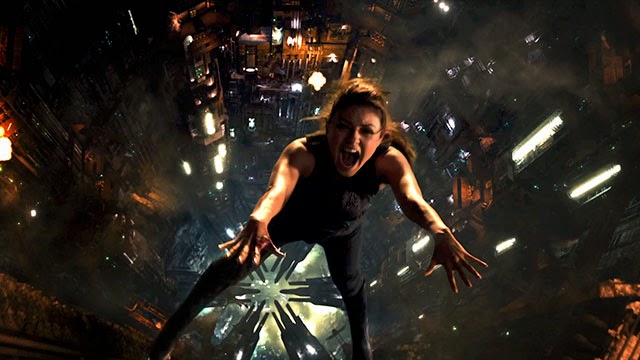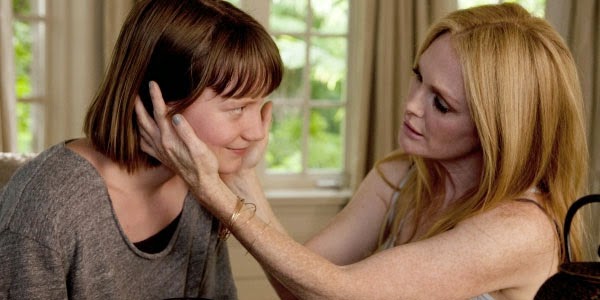It Follows: Getting Off to Pass It On
It is so easy to make a bad horror movie, and so hard to make a good one. Any filmmaker can momentarily shock audiences with a monster bursting from the closet or a killer slashing from the shadows. But It Follows, David Robert Mitchell’s tense, terrifying second feature, is a master class in horror precisely because of what it doesn’t do. It doesn’t simply rely on a familiar pattern of “Boo!” moments, punctuating moments of dark silence with sudden screams. Instead, it develops a sustained, unrelenting sense of dread, building on its clever premise in smart and tantalizing ways. It chokes you with fear, but it never cheats.
It also serves as a showcase for Mitchell’s undeniable craft. His formal command is evident right from the film’s killer opening sequence, in which a teenage girl, Annie (Bailey Spry), bursts from her house in the twilight hours, wearing heels and looking panicked. She stumbles along the street as her neighbors inquire concernedly, and Mitchell’s camera begins a slow 360-degree turn, eventually relocating Annie as she hightails it in her car, with the soundtrack (by electronica outfit Disasterpeace, aka Rich Vreeland) blaring synths ominously. The following morning, Annie is lying dead on the beach, her bloodied body mangled at an awkward angle, and it’s clear that death is stalking this nondescript Detroit suburb. Read More





